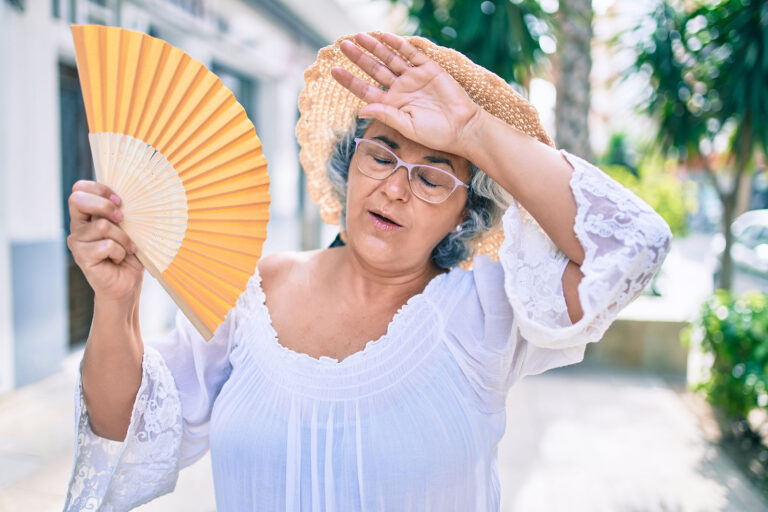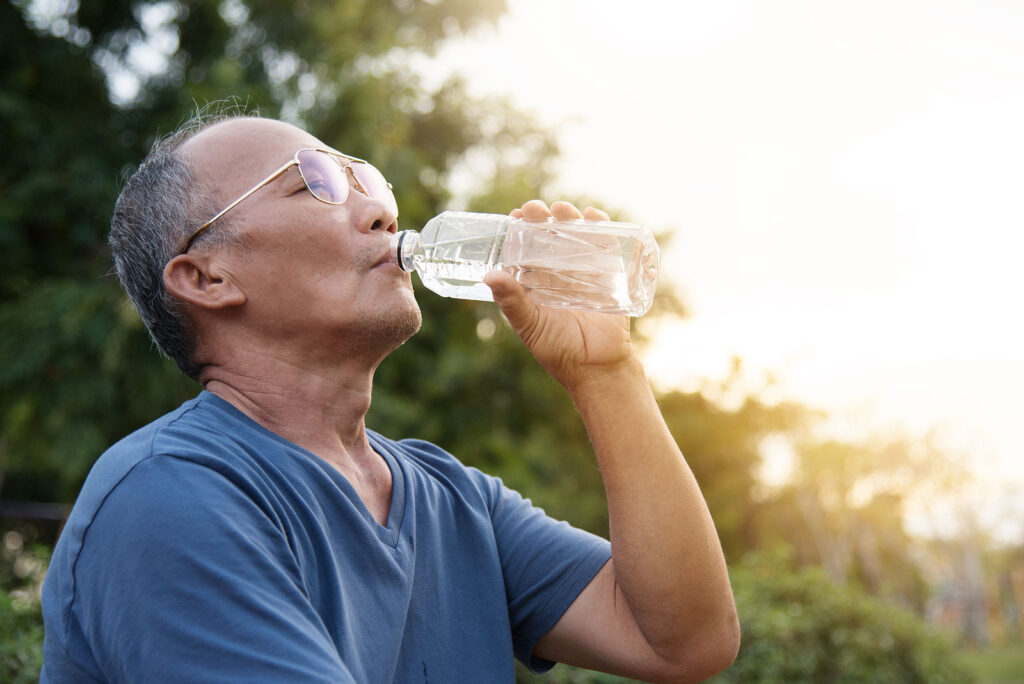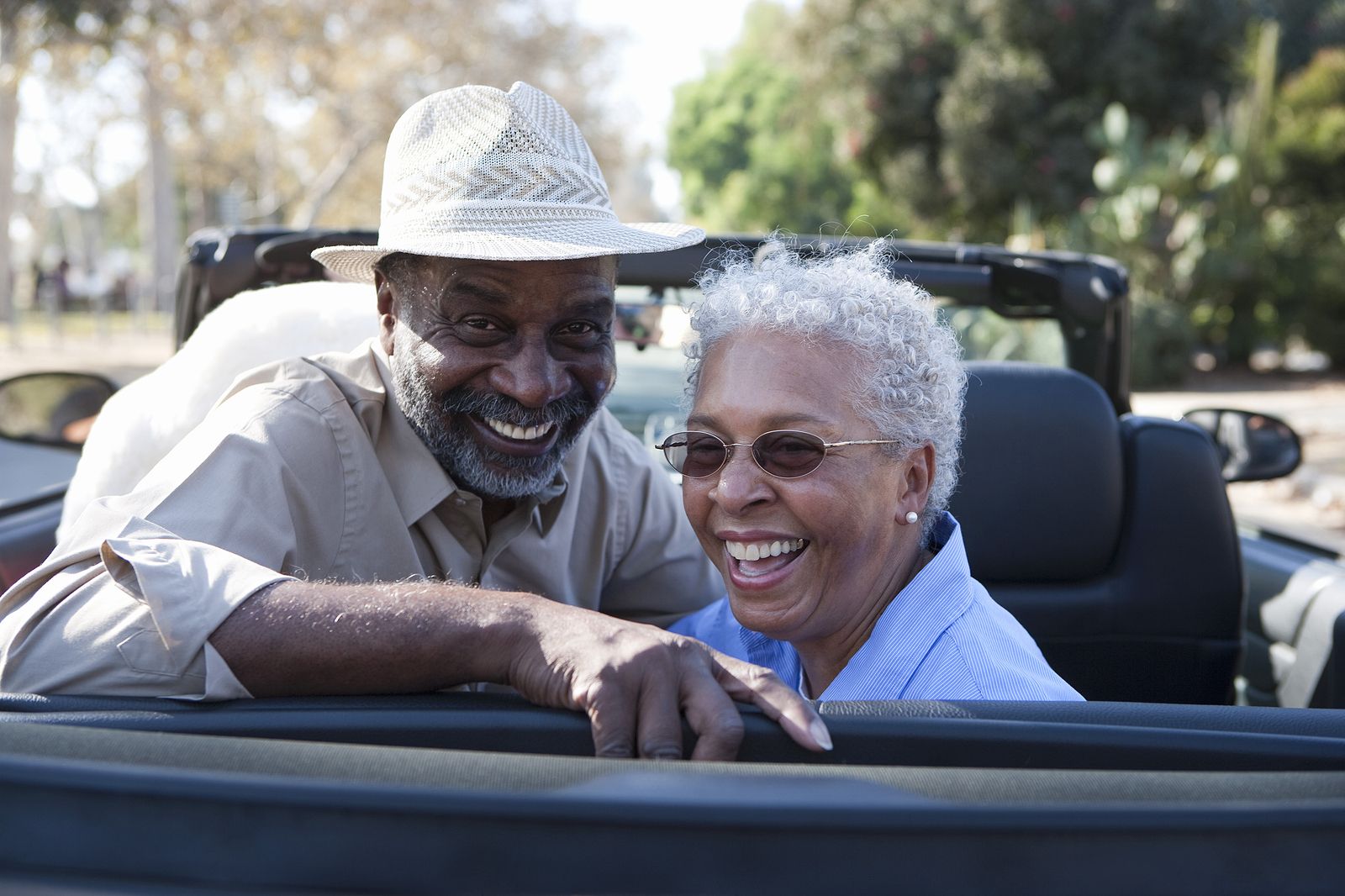
Cooling Down When Weather Gets Hot
Warm weather is usually welcomed and enjoyed by most people. But, extremely hot weather? Probably not so much. Not only is very hot weather uncomfortable, it also can be the cause of dangerous health issues and medical concerns.
As we age, we become more sensitive to extreme heat and more susceptible to heat-related health complications. The effects of the aging process itself, certain medical conditions, and some medications can impact the body’s ability to deal with extreme hot or cold temperatures. Our bodies may not be able to regulate internal temperature and/or perspire as efficiently as we get older.
Heat exposure can lead to a range of medical issues, including light-headedness, fainting, cramps, dehydration, heat exhaustion, and heat stroke. Several heat-related conditions can cause serious health concerns. Heat stroke is the most serious type of heat-related illness and may require emergency medical attention.
Fortunately, being attentive to the risks and potential health issues that may accompany soaring temperatures can help us protect ourselves and stay safe in the heat. (See Take Care in Extreme Summer Heat to learn more about heat exhaustion and heat stroke.) There are plenty of precautions you can take to help make hot weather days less dangerous, easier to endure, and perhaps more enjoyable.
A few “cool down” ideas to try…
- Keep a spray bottle in the refrigerator. When the weather’s hot, spritz your face, neck, and chest area with cold water to help you cool down.
- Store bottled water in the freezer. To feel refreshed, take a bottle out of the freezer and place it on your neck while you wait for its contents to thaw out enough to drink. You may also want to place a bottle or two in front of a fan to enjoy a cool breeze while the water melts.
- Cool off your bed for a better night’s sleep. Put your pillowcase in a plastic storage bag and place it in the freezer for a few hours before heading to bed. Take it out, put it on your pillow, and enjoy some cool comfort. You can also make good use of a partnerless cotton sock to cool off. Fill the sock with rice, tie the open end closed, and put it in the freezer for at least a couple hours before bedtime. Place it between your sheets to create a pleasantly cool cocoon for your sleeping pleasure.
- Use fans… even with air conditioning. If you have window air conditioners, one or more fans can help you circulate the cool air around your home. By placing fans in a specific pattern, you can direct the cool air to the areas of your home that need it most. Unfortunately, fans do not create cold air and can not cool down hot air on their own, but they can help keep heat away from your body.
- Turn off electronic devices when not being used. Most electric devices give off heat when they are turned on, including computers and televisions. A computer that’s in “sleep” mode creates less heat. Speaking of computers, avoid placing your “laptop” computer on your lap in warm weather to avoid feeling its heat. Work at a desk or table instead.
- Let stuff air-dry. Instead of automatically transferring wet, clean clothes from the washing machine to the dryer, get in the habit of hanging your wash outside in the sun to dry or use an indoor drying rack on hot days. When the temperatures are high, try skipping your dishwasher’s drying cycle. Instead, put your dishes through the wash cycle. Once the machine has cooled, let the dishes air dry.
- Make sure to stay well hydrated. Staying well-hydrated is one of the most effective ways to protect your body from overheating. When you perspire, your body loses moisture. If you do not replace the moisture by taking in enough liquid, you will become dehydrated. Consume plenty of water and other fluids throughout the day to avoid dehydration. Sports drinks and beverages with electrolytes are great choices. Opt for fruits and vegetables that are high in water content as well. Try to avoid drinking beverages that contain caffeine and alcohol, because both ingredients are dehydrating.
- Visit air-conditioned public facilities. If you do not have air-conditioning in your home or you would like to cut back on using it, spend time in a public location that is air conditioned. Stop by the public library and read a magazine or use one of their computers to peruse the Internet. See a matinee at your local movie theater. Go to a shopping mall to look around, walk a little, or sit for a while and people watch.
- Invite the outside night air in. Even when daytime temperatures are extremely high, the air tends to cool down at least somewhat once the sun sets. If it is safe to do so where you live, open your windows at night to let in some refreshing cooler air. Prop a fan in the window to pull the air in and create a pleasant breeze. Make sure to shut your windows in the morning. You may want to pull down your blinds or draw your curtains as well to keep the warm air and sunshine from turning your home “toasty.”
- Know the symptoms of heat-related illness. It is important to be able to recognize the signs that you may be experiencing health problems due to heat exposure as well as the proper response to the issue. Symptoms vary according to the type of heat-related illness. (See Take Care in Extreme Summer Heat to learn more about heat exhaustion and heat stroke.)
- Speak with your doctor about your personal risk. The risk of heat-related illness varies from person to person. Each individual’s general health status and the medications he or she takes influences how well the person responds to heat. Your doctor will be able to tell you what to expect and any issue of concern you should be aware of during hot weather.


Age Adds Flavor
We are not old, we are seasoned!
Don’t forget to visit us on FACEBOOK!
